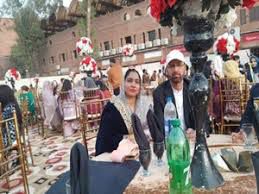A Committee Led by Ram Nath Kovind Delivers a Report to the President on One Nation, One Poll
President Droupadi Murmu received the report on “One Nation, One Poll” from the High Level Committee headed by former President Ram Nath Kovind on Wednesday at Rashtrapati Bhavan, in advance of the 2024 Lok Sabha elections.

The study, which spans 18,626 pages, is the result of 191 days of research and intensive interactions with experts and stakeholders since the committee’s formation on September 2, 2023.
The committee concluded in its report that the proposals it made would greatly improve transparency, inclusion, and voter comfort and trust.
The overwhelming majority of people believe that simultaneous elections would promote social cohesion and strengthen the basis of our democracy. It would also fulfill Bharat, the desire of India.
The Law Commission of India had said earlier in January that one of the main obstacles was obtaining the necessary constitutional amendments to support “One Nation, One Poll.”
Elections for the Lok Sabha and state legislatures will take place simultaneously nationwide, according to the concept of “One Nation, One Poll” or “One Nation, One Election.”
The government’s commitment to addressing this complex issue—which will have a considerable effect on at least 18 states whose state elections are set at a time that differs greatly from the Lok Sabha election—was shown by the committee’s formation.
AN IDEA FOR ONOP
The Election Commission originally recommended in 1983 that a framework be created so that elections for both the Lok Sabha and state legislative assemblies may be conducted concurrently, which is when the concept of ONOP was first put out.
“We must go back to the situation where the elections to the Lok Sabha and all the legislative assemblies are held at once,” the Law Commission, led by Justice B. P. Jeevan Reddy, said in its 170th report in May 1999.
However, the Bharatiya Janata Party administration was in charge when formal talks over the proposal started.
Sushil Chandra, the Chief Election Commissioner at the time, said in 2022 that the EC was ready and competent to hold simultaneous elections. The Law Commission asked stakeholders, including political parties, the European Commission, bureaucrats, academics, and specialists, what they thought of the idea of holding simultaneous elections throughout the country in December of that year.
RESISTANCE FROM PARTY POLICIES
Nonetheless, the proposal has been consistently resisted by a number of people. The Tamil Nadu Assembly passed a resolution last month denouncing the Center’s planned “One Nation, One Election” strategy on the grounds that it is undemocratic and unrealistic.
In a decision on the delimitation exercise, the Assembly also decided that, in the event that the procedure had to be undertaken for “unavoidable reasons,” the population as of the 1971 census should serve as the basis for implementation. Chief Minister M. K. Stalin moved the two resolutions, which included one country, one election idea that he called “autocratic.”
The plan to continue the delimitation process beyond 2026, depending on the census (which could be held after the Lok Sabha elections), was labeled by him as a plot.
Mamata Banerjee, the chief minister of West Bengal and a prominent member of the Trinamool Congress, said earlier this year that the federal structure of India makes the concept of ONOP impractical.
Hours after writing to Dr. Niten Chandra, the secretary of a high-level committee that has asked for recommendations on how to put the notion into practice, Banerjee asked the Election Commission of India (ECI) to conduct a “very rational” investigation into the situation.
“From the perspective of the federal system, it is not feasible, acceptable, or right, therefore, practically speaking, I do not like it. At the state secretariat, Banerjee told reporters, “I will sincerely ask the ECI to see it; they have to be very, very rational in this case, particularly.”
The Aam Aadmi Party was adamantly against the concept of “One Nation, One Election,” claiming that it “will damage the idea of parliamentary democracy, the basic structure of the Constitution and the federal polity of the country.”







